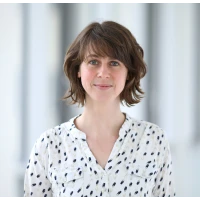Deutsch | English
Your way to a Cooperative Doctorate
Graduates can do a doctorate via a cooperative doctoral procedure in collaboration with another university.
The following steps are intended to give you advice on how to do a cooperative doctorate in collaboration with another university.
For individual consultation, please contact the team promoting early career researchers by making an appointment for a consultation via this form.
Contact
Good preparation is the key to success!
Before embarking on a cooperative doctorate:
before embarking on a cooperative doctorate
Do you want to do a doctorate? Before you start a doctorate, we recommend that you consider the following. What are your motives for doing a doctorate? What conditions will you face during the doctoral period? Talk to your professor or other doctoral candidates as well as your family and friends. For those interested in doing a doctorate, we recommend the guidebook: "ZEIT Campus: Ratgeber Promotion 2023" (only available in German). You are welcome to ask the Speaker for Promoting Early Career Researchers, Sandra Dietzel, for individual advice. On our website, you will also find information on financing options for the multi-year phase of the doctorate.
You have an idea for a dissertation topic and are interested in doing a doctorate at a university of applied sciences in Saxony-Anhalt? Then get in touch with a potential supervisor from your field of research. The best thing to do is to make an appointment for a consultation to present the topic to them. For the first meeting, it is advisable to describe your project in as much detail as possible. Check with your potential supervisor at Merseburg University of Applied Sciences to see if they can recommend a professor at a university for a cooperative doctorate.
Find out about the specific admission requirements by reading the doctoral regulations of the cooperative university. These may differ from university to university. The doctoral regulations form the legal basis for all doctorates and outline the requirements, rights and obligations of doctoral candidates.
If you fulfill the requirements; contact a potential supervisor at the cooperating university. The best thing to do is to make an appointment for a consultation to present the topic to them. For the first meeting, it is advisable to describe your topic and the research question in as much detail as possible.
Write an exposé outlining your research project. Revise your draft together with your supervisors. Conclude a signed supervision agreement with the first supervisor. In addition, we recommend that you sign a detailed doctoral agreement together with your supervisor.
Once you have all the documents required according to the doctoral regulations, you may send off an application for admission to the doctoral procedure to the doctoral committee of the faculty of the respective university. Your admission may be subject to additional requirements (e.g. an examination), which the doctoral committee will inform you of.
Do research and persevere!
During your cooperative doctorate:
During your cooperative doctorate
Once you are admitted, you can enroll at the university as a doctoral student. The main advantages are, for example, the right to use the semester ticket or the university library. Please enquire about this at the university before making your decision.
Furthermore, it is possible to enroll at Merseburg University of applied sciences as a cooperative doctoral student . Please refer to the matriculation regulations (only available in German) to find out which criteria have to be fulfilled. Enrollment at Merseburg University of Applied Sciences is done via the online application form for degree programs (only available in German). To enroll, scroll to "Start" and follow the instructions. If you have any questions, please contact the Student Secretariat at Merseburg University.
The Graduate Academy of Merseburg University of Applied Sciences supports and accompanies all of its doctoral students with the interdisciplinary qualification, consultation and coaching program. Take advantage of the wide range of offers to ensure the quality of your doctorate! At the same time, your registration supports the collection of doctoral statistics at Merseburg University of Applied Sciences, which is of great importance on a local level - for the state of Saxony-Anhalt - as well as nationwide. Sign up here for the newsletter and stay informed about all offers of the graduate academy.
Now the phase begins in which you focus on completing your doctorate. Usually, you have up to five years in which to do so. The doctoral regulations of your cooperating university regulate further details.
An academic exchange - on a regular basis - with your first and second supervisors is particularly important. In this way, you can report on your progress, discuss any partial results achieved and work towards an optimal outcome in the long term
A lively dialogue in a working group and participation in scientific colloquia is beneficial for your research work. While writing your doctorate attend the Graduate Academy's qualification and networking events and above all, always adhere to the principles of good scientific practice when researching and writing.
The supervision agreement for cooperative doctoral procedures documents the supervisory relationship between the doctoral candidate and the second supervisor at Merseburg University of Applied Sciences. Please use the following template.
Ready soon!
Completion of your cooperative doctorate:
Completion of your cooperative doctorate
Once your dissertation is ready, you must apply to the doctoral committee for admission to the doctoral procedure. The doctoral regulations of your university regulate further details about conditions and procedures. These can vary considerably from university to university.
Further details about conditions and the defense procedure are regulated by the doctoral regulations of your university.
The doctoral procedure is considered completed once your dissertation has been published. You usually have one to two years to do this. The doctoral regulations of your university regulate further details about conditions and procedures.
As soon as your dissertation has been published and the deposit copies have been submitted to the university, you will receive your doctoral certificate. From this point on, you may use your doctoral title. Further details about conditions and procedures are regulated by the doctoral regulations of your university.
Congratulations!
Center of Advanced Scientific Education (CASE)
funded by










